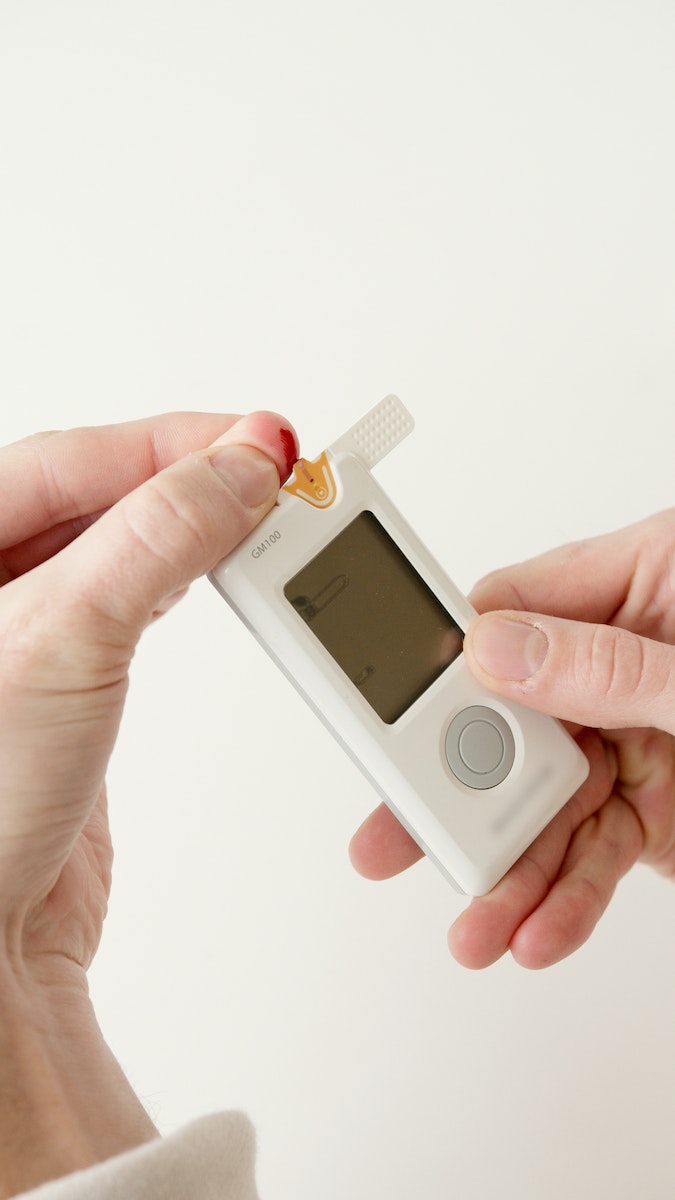Ozempic is a prescription medication used to treat type 2 diabetes. While it has been approved by the FDA, recent studies have raised concerns about its safety and potential risks. In our previous blog, we wrote about 5 Safe Alternatives to Duodenal Switch Bariatric Surgery. Now let’s find out if, Is Ozempic a high risk medication?. Let’s find out in this blog post, let’s take a closer look at Ozempic and explore the 10 shocking reasons why you should reconsider using this dangerous drug, including whether or not it is considered a high-risk medication.
Is Ozempic a High Risk Medication?
Ozempic is a brand name for semaglutide, a type of medication known as a glucagon-like peptide-1 receptor agonist (GLP-1 RA).
Ozempic works by mimicking the effects of a naturally occurring hormone in the body that regulates blood sugar levels.
It is intended for use in combination with diet and exercise to improve glycemic control in adults with type 2 diabetes.
However, there is a high risk associated with this medication, including:
1. Ozempic increases the risk of thyroid cancer
 Recent studies have suggested that Ozempic may increase the risk of thyroid cancer.
Recent studies have suggested that Ozempic may increase the risk of thyroid cancer.
Thyroid cancer is a type of cancer that affects the thyroid gland, which is located in the neck.
Symptoms of thyroid cancer can include a lump or swelling in the neck, difficulty swallowing, and hoarseness.
The FDA has issued a warning about the potential risk of thyroid cancer associated with Ozempic.
2. Ozempic can cause pancreatitis
 Pancreatitis is a condition in which the pancreas becomes inflamed.
Pancreatitis is a condition in which the pancreas becomes inflamed.
Symptoms of pancreatitis can include severe abdominal pain, nausea, and vomiting.
Recent studies have suggested that Ozempic may increase the risk of pancreatitis. The
FDA has issued a warning about the potential risk of pancreatitis associated with Ozempic.
3. Ozempic can lead to kidney damage
 Recent studies have suggested that Ozempic may increase the risk of kidney damage.
Recent studies have suggested that Ozempic may increase the risk of kidney damage.
Kidney damage can lead to a range of complications, including kidney failure.
Symptoms of kidney damage can include fatigue, nausea, and swelling in the legs and ankles.
The FDA has issued a warning about the potential risk of kidney damage associated with Ozempic.
4. Ozempic can cause allergic reactions
Allergic reactions to Ozempic can be severe and can cause swelling of the face, lips, tongue, and throat, difficulty breathing, and hives.
These reactions can be life-threatening and require immediate medical attention.
In response to reported cases, the FDA has issued a warning about the potential risk of allergic reactions associated with Ozempic.
5. Ozempic can increase the risk of retinopathy
 Retinopathy is a condition that affects the retina, which is the part of the eye responsible for vision.
Retinopathy is a condition that affects the retina, which is the part of the eye responsible for vision.
Symptoms of retinopathy can include blurred vision, floaters, and difficulty seeing at night.
Recent studies have suggested that Ozempic may increase the risk of retinopathy.
The FDA has issued a warning about the potential risk of retinopathy associated with Ozempic.
6. Ozempic can cause low blood sugar
 Hypoglycemia, commonly known as low blood sugar, is a possible adverse reaction of Ozempic, a medication used to treat type 2 diabetes.
Hypoglycemia, commonly known as low blood sugar, is a possible adverse reaction of Ozempic, a medication used to treat type 2 diabetes.
Hypoglycemia symptoms can include shakiness, confusion, sweating, and in severe cases, seizures and loss of consciousness.
The US Food and Drug Administration (FDA) has alerted healthcare professionals and patients about the potential risk of hypoglycemia linked with Ozempic use.
The FDA recommends healthcare providers and patients closely monitor blood sugar levels and take necessary precautions to prevent low blood sugar.
7. Ozempic can lead to dehydration
Dehydration occurs when the body loses more fluids than it takes in.
This can be caused by a lack of water intake, excessive sweating, diarrhea, vomiting, or use of certain medications.
Symptoms of dehydration include dry mouth, thirst, dark-colored urine, fatigue, dizziness, confusion, and fainting.
Ozempic can cause dehydration as it reduces the appetite and food intake.
This may cause people to drink less water than usual, leading to dehydration.
The FDA has warned that Ozempic may cause dehydration and advised patients to drink enough water to avoid dehydration.
8. Ozempic can cause gallbladder problems
The gallbladder is a small organ located beneath the liver, responsible for storing and releasing bile, which helps in digestion.
Gallbladder problems occur when the bile becomes thick or when the gallbladder is inflamed or infected. Studies have shown that
Ozempic may increase the risk of gallbladder problems, including gallstones, cholecystitis, and cholangitis.
Symptoms of gallbladder problems include pain in the upper right abdomen, nausea, vomiting, fever, and jaundice.
The FDA has warned that Ozempic may cause gallbladder problems and advised patients to seek medical attention if they experience symptoms of gallbladder disease.
9. Ozempic can interact with other medications
 Drug interactions occur when two or more drugs interact with each other, altering the effectiveness or toxicity of the drugs.
Drug interactions occur when two or more drugs interact with each other, altering the effectiveness or toxicity of the drugs.
Ozempic can interact with certain medications, including insulin, sulfonylureas, and thiazolidinediones.
Drug interactions with Ozempic may increase the risk of low blood sugar, which can be dangerous, especially in people with type 1 diabetes.
Patients should always inform their doctor of any medications they are taking before starting Ozempic.
10. Ozempic is expensive
Ozempic is a relatively new medication, and its cost is higher than other diabetes medications.
Ozempic’s cost is higher than other diabetes medications, such as metformin and insulin.
The average retail price of Ozempic is around $800 for a monthly supply.
There are alternative treatment options for diabetes, such as lifestyle changes, diet modifications, and other medications.
Patients should discuss these options with their doctor to find the most suitable treatment for them.
Conclusion
In conclusion, there are several reasons to reconsider using Ozempic as a treatment for diabetes.
These include the increased risk of thyroid cancer, pancreatitis, kidney damage, allergic reactions, retinopathy, low blood sugar, dehydration, gallbladder problems, drug interactions, and the high cost of the medication.
While Ozempic can be an effective treatment for diabetes, it is important to weigh the potential risks and benefits before starting the medication.
Patients should discuss any concerns they have with their healthcare provider and work together to determine the best treatment plan for their individual needs.
It is important for patients to have a clear understanding of the potential risks and benefits of any medication they are prescribed.
By having open and honest conversations with their healthcare providers, patients can make informed decisions about their treatment options and reduce their risk of experiencing adverse side effects.
Are you concerned about the potential risks and side effects of weight loss medications like Ozempic?
After knowing about ten shocking reasons to reconsider using this high-risk drug, it's natural to seek safer and more effective alternatives to achieve your weight loss goals.
That's where the PrimaJust weight loss method comes in.
Introducing a breakthrough approach that unlocks your metabolism for all-natural weight loss, enabling you to shed 1-3 pounds per week without the need for restrictive diets or strenuous workouts.
Don't put your health at risk with questionable medications.
Take charge of your well-being and download our still free report today to discover The Exact Method to Unlock Your Metabolism for All-Natural Weight Loss.
Embrace a safer, healthier, and sustainable weight loss journey.
Act now and pave the way to a happier, fitter you—no diet or exercise needed!
[Source]Free Report
Seeking effortless weight loss? Don’t miss out on your chance to book a free Weight Loss Clarity Call.
Feed your curiosity with these fascinating related blog posts
-
Is Ozempic for Weight Loss Worth the Risk? Uncovering Danger
If you're struggling with obesity, you've probably tried many weight loss methods, including diet and…
-
Ozempic for Weight Loss: Bold US Seeker Dive into Canada & Mexico
Ozempic for weight loss has become a widely discussed topic in the United States, as…
-
Ozempic Side Effects: How they Wreak Havoc on Dieters
Ozempic side effects can be devastating for those who are using this drug as a…















